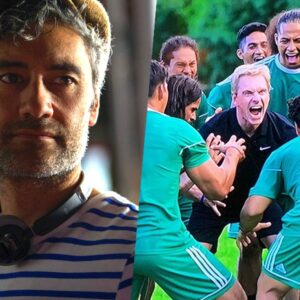
The Rotinonshonni: A Traditional Iroquoian History Through the Eyes of Teharonhia:wako and Sawiskera by Mohawk scholar Brian Rice offers a comprehensive history based on the oral traditions of the Rotinonshonni Longhouse People, also known as the Haudenosaunee or Iroquois. Drawing upon J. N. B. Hewitt’s translation and the oral presentations of Cayuga Elder Jacob Thomas, Rice records the Iroquois creation story, the origin of Iroquois clans, the Great Law of Peace, the European invasion, and the life of Handsome Lake. As a participant in a 700-mile walk following the story of the Peacemaker who confederated the original five warring nations (Mohawk, Oneida, Onondaga, Cayuga, and Seneca) that became the Rotinonshonni, Rice traces the historic sites located in what are now known as the Mississippi River Valley, Upstate New York, southern Quebec, and Ontario.
Based on the traditional teachings and texts by Jacob Thomas, Jake Swamp, Tom Porter, and John Arthur Gibson, the author has combined the variants of Creation Story, the Clan System, the Kayeneren:kowa or Great Law of Peace, and the Kari:wio or Code of Handsome Lake, into this 328-page rendition of Haudenosaunee history and spirituality. Using simple dialogue, the author achieves a truly oral account of these key principles of core Haudenosaunee teachings. An index would have been helpful, as well as a map tracing the author’s Peacemaker’s Walk. but these are minor points. Recommended.
Thinking in Indian: A John Mohawk Reader presents the worldview of philosopher-thinker-activist John Mohawk (Sotsisowah) (1945-2006). A university professor and traditional teacher from the Seneca Nation with deeply rooted Haudenosaunee traditions, Mohawk’s intellectual approach is keenly universal without losing his own cultural foundations. A participant and leader in the Indigenous traditional movement, John Mohawk’s gifted oratory and clear thinking became the basis of a substantial current of Indigenous activism.
These essays, produced and published over thirty years, are thoroughly current. They reflect consistent engagement in Indigenous events and issues and deliver a profoundly Haudenosaunee analysis of modern existence. Indigenous sovereignty, cultural roots and worldview, land and treaty rights, globalization impacts, spiritual traditions, and fundamental human wisdom combine to provide a genuinely Haudenosaunee perspective on current events.
Presently a senior scholar at the Smithsonian National Museum of the American Indian, Editor Jose Barreiro is a novelist, essayist, and an activist of nearly four decades on American Indigenous themes. In 1974, Barreiro was enlisted by John Mohawk to help produce the national newspaper Akwesasne Notes, published by the traditional Mohawk Nation. For ten years, they served as joint coordinators on numerous Indigenous human rights and community building campaigns. As editor of Cornell University’s Akwe:kon Press from 1984 to 2002, and later as senior editor of Indian Country Today, Barreiro published dozens of Mohawk’s essays and columns. Barreiro is a member of the Taino Nation of the Antilles. Highly Recommended.











